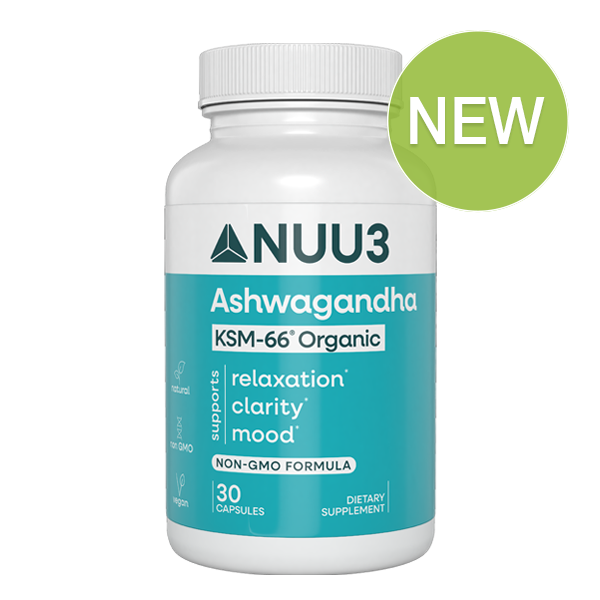Core Sleep: A Comprehensive Guide

Sleep is probably one of the most essential factors of good health. When you talk about the sleep cycle, you’ll likely be introduced to things like non-REM, REM or rapid eye movement, and deep sleep. These are all important parts of the sleep process. However, there is one thing that’s not as commonly discussed and that is core sleep. Core sleep isn’t a new stage that you go through when you sleep. Rather, it’s a phrase that refers to specific portions of sleep that play an incredibly important role in helping you feel rested and healthy.
What is Core Sleep?
We should start by considering the core sleep meaning.
Core sleep itself isn’t a stage of sleep. Instead, it refers to the duration in which you go through deep sleep and REM. To truly understand the concept, you must know how the sleep cycle works.
There are four stages[1] that you go through in your sleep cycles. It starts with non-REM sleep which is usually divided into three categories - N1 - drowsiness, N2 - light sleep, and N3 - transitionary deep sleep. When you’re in non-REM sleep stages one and two, your sleep is shallow. During N3, you fall into deep sleep which prepares you to transition to REM (Rapid Eye Movement) sleep.
The Importance of Core Sleep
Every stage of sleep has its role to play. Core sleep is essential as it is a determinant of how much sleep you need to feel rested and function well during the day. This sleep should be enough to enable your body and brain to undergo repair processes such as tissue reconstruction, memory retention, and hormone balance.
Once you enter REM sleep, your brain waves start to become more active[2]. It is in this stage where most dreams appear vividly. Since your brain becomes more active, this stage is not as restful. How your brain works when you’re in this sleep stage is similar to how it works when you’re awake. Therefore, having a sound core sleep will contribute to a well-nurtured and healthy well-being. Researchers also found that good core sleep improves memory and cognitive function.
Core Sleep vs. Deep Sleep: What’s the difference?
It’s important to understand the differences between these two. When asking what is core sleep and deep sleep - you should note that they are not entirely the same. Deep sleep is a specific stage during sleep cycles. On the other hand, the term “core sleep” refers to the smooth transition of two stages in sleep cycles, from N3 to REM. Core sleep should last the duration in which you enter two specific sleep stages that are considered helpful for better health.
How Long Do you Stay in Core Sleep?
As you enter the core sleep phases of sleep, you stay in them for a couple of minutes. Core sleep duration is usually between 10 and 25 minutes. However, you may go through multiple sleep cycles during the night which means the duration of your core sleep will vary each time you enter a sleep cycle.
What is the Impact of Core Sleep on Your Health?
Now you understand the core sleep meaning, let’s take a closer look at some of the health benefits it brings.
-
Improved cognitive function: Your brain goes through a restorative process when you are in core sleep. It also helps you achieve a refreshed mind and better cognition the next day.
-
Reduced stress and anxiety: If you’re able to get into these sleep stages, it will have a noticeable impact on your stress symptoms and you will feel less anxious. You can further boost these positive effects with the Nuu3 Keep Calm Gummies. These supplements are formulated with grade-A ingredients that promote calmness and offer relief from stress and anxiety symptoms.
-
Enhanced physical recovery: Your body starts to push more blood into muscle tissues when you’re in deep sleep. This is also going to provide you with a fast recovery after a hard workout.
-
Reduced risk of chronic health conditions: Your risk of having conditions like heart disease, stroke, and even diabetes, will significantly decline if you’re getting enough of these sleep stages. You’re also less likely to become obese. If you’re trying to lose weight, you could further boost your results if you take supplements like Nuu3 ACV Gummies. These gummies are effective in promoting healthy weight loss.
-
Improved sleep quality: you’ll also notice a drastic improvement in your overall sleep quality if you get more core sleep.
How much Deep Sleep do you Need by Age?
As you go through sleep cycles, the amount of time you spend in deep sleep begins to add up. But how much deep sleep do you need?
To take full advantage of what deep sleep can offer, you must understand how long you should remain in this stage.
The ideal amount of deep sleep largely depends on your age. For example, a newborn baby needs up to 3.6 hours of deep sleep every night. If you’re over 18 years old, you only need about 1.8 hours of deep sleep to get the full benefits and the need for deep sleep tends to decrease as you grow older.
What does a Healthy Sleep Cycle look like?
A healthy sleep cycle will generally include both non-REM and REM sleep stages. You’ll go through these for about four to six cycles during the night. The longer you sleep, the more time you’ll spend in core sleep.
You should know about the core sleep meaning if you want to understand what a healthy sleep cycle looks like. Having a grasp of the stages mentioned above is important.
How can I get more Core and Deep Sleep?
There are a couple of ways to get more core sleep. Physical exercise helps to improve your overall sleep quality and you should also try to limit your alcohol and caffeine intake during the evening. Meditation is a beneficial practice, especially if you’re struggling with stress or anxiety.
Creating a bedtime routine will also be helpful. For example, after taking a shower, you can take Sleep Support Gummies to help you relax and fall asleep faster.
FAQ
What are the chronic health conditions that can be reduced by core sleep?
If you get enough core sleep, your risk for high blood pressure, obesity, type 2 diabetes, and even depression will decline. Plus, you’ll be less likely to have a heart attack or a stroke.
Which stage of sleep is most important?
Every stage has its role, but researchers have found that deep sleep is particularly important. Moreover, some would suggest that the entire core sleep phase is crucial as it includes both deep and REM sleep.
Do you dream in core sleep?
Yes, it’s possible to dream while you are in the core sleep stages. Dreaming can occur in any sleep stage. However, REM sleep is the stage of core sleep where dreams tend to be much more vivid.
Does core sleep make you feel rested?
Yes, it does. Deep sleep is one of the most restorative stages of sleep that you go through during the night.
Final Thoughts
Core sleep is an important part of your sleep cycle. It can happen multiple times throughout your sleep duration. However, certain lifestyle factors can interfere with core sleep and this may increase your risk for conditions like diabetes and hypertension. Understanding the stages of sleep and following the tips above should help you improve the quality of your night's rest. Having an undisrupted deep sleep will make you feel well-rested, rejuvenated, and ready for the day ahead.
References
1] ↑ https://www.ncbi.nlm.nih.gov/books/NBK526132/
2] ↑ https://www.nichd.nih.gov/health/topics/sleep/conditioninfo/what-happens













